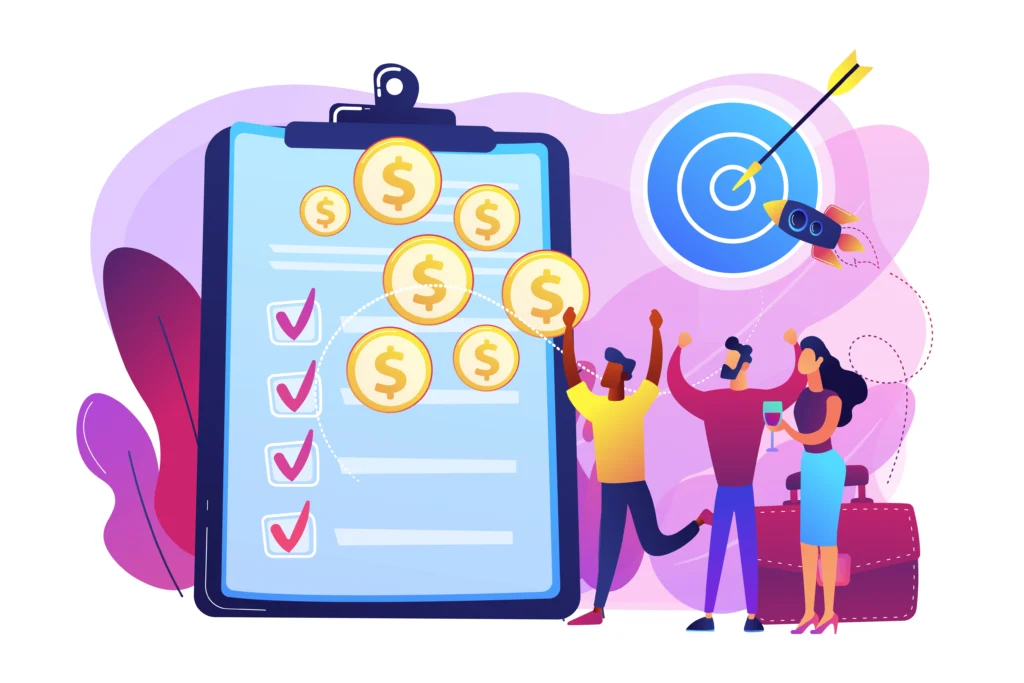In today’s world, money is important in life because it plays an undeniable role in shaping who we are, what we can achieve, and even how we view our own success. While some may argue that it’s not the most important thing in life, the reality is that money touches nearly every corner of our existence. Whether it’s ensuring access to basic needs, providing opportunities for personal growth, or securing long-term stability, money is integral to the life we live. This raises the essential question: Why is money so important in our lives, and how can we ensure we use it wisely?
In this blog, we will explore the undeniable importance of money is important in life in three major areas: survival, success, and personal fulfillment. We’ll examine how money supports our most basic needs, enables us to pursue our aspirations, and provides the security and independence that contribute to our overall well-being. Most importantly, we’ll discuss how to find a balance with money, using it as a tool to enhance our lives without allowing it to define us.
Table of Contents
Why Money Is Important in Life: The Core Truth
1. Meeting Basic Necessities
Money is important in life not just as a means to acquire luxuries, it is the cornerstone of securing life’s most fundamental necessities. At its core, money allows us to meet our basic survival needs: food, shelter, clothing, and healthcare. Without sufficient funds, these essentials become unattainable, and the basic quality of life we often take for granted slips further out of reach.
Supporting Points:
- Impact of Poverty on Quality of Life: When individuals lack access to money, they face significant challenges in accessing adequate nutrition, proper housing, and essential healthcare. Poverty often leads to malnutrition, illness, and ultimately lower life expectancy, creating a cycle that can be difficult to break. A lack of financial resources directly correlates with poor health outcomes, highlighting the vital role money plays in ensuring that we thrive rather than just survive.
- Income and Life Expectancy: Research consistently shows a clear connection between income levels and life expectancy. Those with higher income generally have access to better healthcare, live in healthier environments, and enjoy longer, more prosperous lives. For example, studies in developed nations have indicated that those in higher income brackets tend to live significantly longer than those in lower-income brackets.
2. Pursuing Goals and Aspirations

Money is important in life not just as a means of survival; it is also a powerful tool that allows us to invest in ourselves and our dreams. Whether it’s funding education, pursuing personal passions, or venturing into entrepreneurship, money plays a crucial role in opening doors to personal growth and achievement. The ability to follow one’s dreams and goals often depends on having the financial resources to do so, and this investment in ourselves can lead to greater success and fulfillment.
Supporting Points:
- Importance of Funding Education and Training for Future Success: Higher education and professional training are often the key to unlocking better job opportunities and higher earning potential. However, acquiring these qualifications requires financial investment. Without money, many individuals would be unable to afford the necessary tuition or training programs to advance their careers. This investment in education not only pays off in the form of career success but also broadens personal horizons and enhances intellectual growth.
- Role of Money in Pursuing Passions: Hobbies and passions, from playing an instrument to traveling the world or pursuing sports, require financial commitment. Music lessons, sports equipment, travel expenses, and training costs are just a few of the investments needed to follow these dreams. Many successful individuals, from musicians to athletes, often attribute their achievements to the early investments made in their passions, which they couldn’t have pursued without financial backing.
- Personal Examples or Quotes from Successful Individuals: Successful individuals often Share stories of how money is important in life to help people realize their dreams. For instance, Elon Musk invested his own money to fund early ventures like SpaceX and Tesla, both of which required significant capital to get off the ground. Similarly, Oprah Winfrey used her early income to invest in her education and career, which eventually led to her becoming a media mogul.
3. Financial Security and Peace of Mind
Money is important in life because financial stability is more than just a comfortable lifestyle it’s the foundation of peace of mind. Knowing that you have the resources to handle life’s unpredictable challenges brings a sense of security that allows you to focus on growth, relationships, and enjoying life. Financial security isn’t just about having a cushion for today; it’s about being prepared for the future, whether it’s an unexpected emergency or long-term goals like retirement.
Supporting Points:
- Role of Money in Handling Emergencies (Job Loss, Medical Crises): Life is unpredictable, and emergencies such as job loss, medical crises, or natural disasters can happen at any time. Having financial resources available ensures that you can navigate these challenging times without the added burden of financial stress. For example, an emergency savings fund can provide the necessary support during a job search or unexpected medical expenses, allowing individuals to focus on recovery or finding new employment rather than worrying about their financial stability.
- Benefits of Planning for the Future (Retirement, Homeownership): Financial planning helps secure long-term goals such as homeownership or retirement. A stable income allows for contributions to retirement accounts and savings for a down payment on a home, both of which are key to achieving a comfortable and stress-free future. Without financial planning, these long-term goals can remain out of reach, creating stress and uncertainty about the future.
- Mental and Emotional Benefits of Financial Security: Financial security provides not only physical stability but also mental and emotional well-being. It reduces anxiety, promotes better mental health, and fosters a sense of freedom to pursue other goals in life. Research has shown that individuals with greater financial security experience lower levels of stress and enjoy better overall health, which underscores the importance of money in maintaining both emotional and physical well-being.
4. Empowerment and Independence

Money is important in life because it offers more than just a safety net, it provides the freedom to make choices that reflect personal values and desires. Financial independence allows individuals to live life on their terms, making decisions that align with their goals, beliefs, and passions. Without the constraints of financial dependence, people are empowered to take control of their lives and pursue paths that might otherwise be inaccessible
Supporting Points:
- Financial Independence as a Form of Self-Reliance: Achieving financial independence means relying on oneself rather than depending on others for financial support. This self-reliance fosters confidence and autonomy, enabling individuals to make decisions based on personal aspirations instead of external pressures. It allows for greater flexibility in how you spend your time and resources, whether that means pursuing entrepreneurial ventures, travel, or even advocating for causes that matter to you.
- Examples of How Money Gives People the Freedom to Choose Their Path in Life: Many individuals who have attained financial independence can attest to the freedom it brings. For example, someone who has saved and invested wisely may choose to leave a traditional job to start their own business or pursue a passion project. Financial independence frees them from the fear of failure or the need to rely on others, offering the flexibility to make choices that align with their dreams.
5. Enhancing Social Status
Money is important in life because it plays a significant role in shaping an individual’s social status and access to opportunities. It affects how people perceive themselves and how they are perceived by others, influencing relationships, networking, and social mobility. While financial success can lead to more opportunities and stronger connections, it is important to recognize that money should not be the sole measure of worth or social success.
Supporting Points:
- Role of Money in Expanding Social Circles and Gaining Access to Influential Networks: Financial success often provides access to exclusive social circles, events, and networking opportunities. People with wealth are more likely to meet influential individuals, which can open doors to business deals, career advancements, and new social connections. This is why money is often seen as a gateway to broader social networks, as it facilitates entry into spaces where important decisions are made.
- How Financial Success Impacts Family Relationships and Support: Money can improve family life by easing financial burdens, allowing families to focus on quality time and mutual support. However, financial success can also place pressure on family dynamics, potentially leading to jealousy or conflict if not managed carefully. Ensuring that wealth does not define relationships is key to maintaining strong, meaningful connections with loved ones.
- Cautionary Note on Not Letting Money Define Social Worth: While money can open doors and enhance social status, it is crucial not to let it become the defining factor of one’s identity or worth. True value comes from personal qualities, relationships, and contributions to society. It is important to remember that money should serve as a tool to enrich life, not as a measure of one’s significance.
6. Driving Economic Growth
Money is important in life not just on a personal level, but also in fostering economic growth and development on a larger scale. It serves as the fuel that drives commerce, innovation, and job creation. The circulation of money in an economy enables businesses to grow, industries to thrive, and individuals to access the goods and services they need. Without money, trade would be much more difficult, and economic progress would stagnate.
Supporting Points:
- How Money Drives Commerce, Job Creation, and Business Growth: Money is the lifeblood of economies. It allows businesses to operate, pay employees, invest in infrastructure, and innovate. The flow of money enables new ventures to emerge, creating jobs and boosting economic activity. For example, when people spend money on goods and services, businesses expand, employees are hired, and communities prosper.
- The Importance of Money in Solving the “Coincidence of Wants” in Trade: Money eliminates the limitations of barter by serving as a universal medium of exchange. It solves the problem where two people need what the other offers, which is not always the case in barter systems. Money enables individuals to trade goods and services efficiently, promoting economic exchange and growth.
- Examples of Economies Thriving Due to Money Circulation: Consider economies like the United States or China, where the circulation of money through businesses, individuals, and government spending has led to sustained economic growth. Countries with robust financial systems tend to have higher standards of living and lower levels of poverty due to the consistent movement of capital.
Challenges Associated with Money
While money is important in life, its pursuit is not without challenges. Wealth disparities, ethical concerns, and the psychological toll of financial pressure can create social tensions and personal struggles. It is important to acknowledge these negative aspects and strive to manage money in a way that avoids these pitfalls.
Supporting Points:
- The Issue of Wealth Disparity and Its Societal Consequences: The growing gap between the rich and poor has led to significant social inequalities, with many people having limited access to basic needs and opportunities. This disparity can result in social unrest, discrimination, and a lack of social mobility for those in lower-income brackets.
- Ethical Dilemmas in the Pursuit of Wealth: The drive to accumulate wealth can sometimes lead to unethical practices, such as exploitation or environmental harm. It is crucial to balance the pursuit of financial success with ethical considerations, ensuring that wealth is earned and spent responsibly.
- The Psychological Cost of Prioritizing Money Over Well-Being: An excessive focus on money can lead to stress, anxiety, and even burnout. People who prioritize wealth accumulation above all else may neglect their physical and mental health, relationships, and personal happiness. It’s important to maintain a healthy perspective on money, recognizing that it should support well-being, not sacrifice it.
A Balanced Perspective on Money
While money is important in life, it should not be the central focus of life. Money is a tool that, when used wisely, can enhance personal well-being and contribute to society. However, it is crucial to remember that happiness, love, and fulfillment cannot be purchased with money alone. A balanced approach to finances involves mindful spending, ethical earning, and a focus on what truly matters in life.
Supporting Points:
- Money Can’t Buy Happiness or Love, But It Facilitates Access to Resources That Support These: Money provides the means to access resources that can improve our quality of life, such as health care, education, and travel. However, it cannot buy true emotional fulfillment or meaningful relationships. It is important to strike a balance between using money to enhance life and focusing on what brings genuine happiness.
- The Importance of Ethical Earning and Mindful Spending: Money should be earned in a way that aligns with personal values, and it should be spent thoughtfully, prioritizing experiences, growth, and well-being. This ensures that wealth contributes positively to both the individual and the broader community.
- Finding a Balance: Money as a Tool, Not the End Goal: At the end of the day, money is a tool that should serve a greater purpose, whether it’s achieving personal goals, enhancing relationships, or making a positive impact on society. It is not an end in itself but a means to an end, and finding balance is key to a fulfilling life.
Conclusion
In this exploration of the role of money is important in life, we’ve seen that it serves as a foundation for meeting our basic needs, pursuing our dreams, securing peace of mind, and achieving personal empowerment. Money plays a critical role in driving economic growth and creating opportunities, while also influencing our social status and relationships. However, we also acknowledge the challenges that come with money, such as inequality, ethical dilemmas, and the psychological costs of prioritizing wealth over well-being.
Ultimately, while money is undeniably vital to our survival and success, its true value lies in how we use it. It is a tool not an end goal that can help us achieve our aspirations, enhance our lives, and contribute to the greater good. The key is to maintain balance and make mindful decisions, ensuring that money serves our personal values, relationships, and societal impact.
How will you use money to improve your life and the lives of others? The choice is yours, and how you choose to use it will define the role money plays in your life and legacy.
(FAQ)
1. Why is money is important in life?
Money is essential for meeting basic needs such as food, shelter, healthcare, and education. It also provides the freedom to pursue personal goals, achieve financial security, and live a comfortable life. While it can’t buy happiness directly, money enables access to resources that contribute to a fulfilling life.
2. Can money buy happiness?
While money itself doesn’t directly buy happiness, it provides the means to reduce stress and improve quality of life. Financial security can alleviate worries about basic survival, while wealth can open up opportunities for personal growth, travel, and experiences that bring joy. However, true happiness comes from within and the meaningful connections we build.
3. How does financial independence empower people?
Financial independence grants individuals the freedom to make choices based on their values and desires, rather than being constrained by financial limitations. It fosters self-reliance, allowing people to live on their own terms, pursue passions, and take charge of their future.
4. What are the downsides of focusing too much on money?
Focusing solely on money can lead to issues such as stress, anxiety, and strained relationships. The pursuit of wealth can create ethical dilemmas, foster inequality, and diminish overall well-being if it comes at the expense of personal happiness, health, and meaningful connections.
5. How can I balance money with other important aspects of life?
Striking a balance involves using money as a tool to support your goals and values without allowing it to dominate your life. Prioritize meaningful relationships, personal growth, and well-being, and ensure that your financial decisions align with your broader life objectives and ethical principles.








